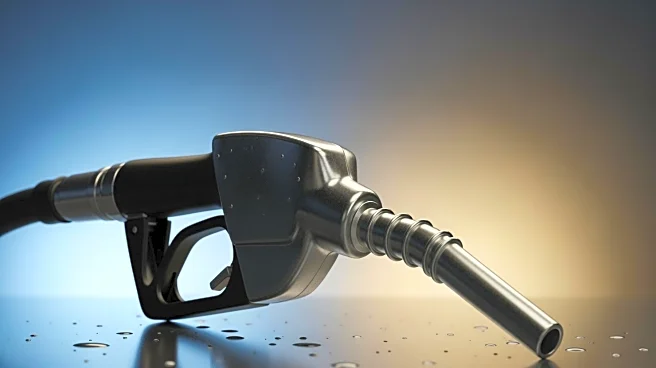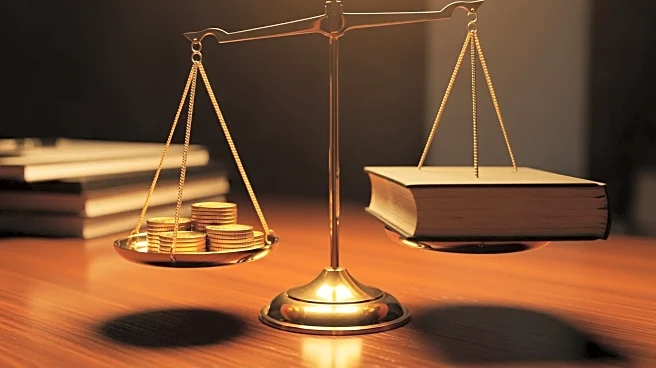What's Happening?
President Trump recently granted a pardon to Changpeng Zhao, the billionaire founder of the cryptocurrency exchange Binance, who had previously pleaded guilty to money-laundering violations in 2023. Despite the pardon, President Trump claimed in a '60
Minutes' interview that he did not know Zhao. This statement comes amid revelations that Zhao's company had entered into a business deal with World Liberty Financial, a cryptocurrency venture co-founded by Trump's sons, Don Jr. and Eric. The deal was expected to generate significant revenue for the Trump family. Zhao had hired lawyers and lobbyists with connections to the Trump administration to seek his pardon.
Why It's Important?
The pardon of Changpeng Zhao and the subsequent denial of familiarity by President Trump raise questions about the influence of personal and business relationships on presidential decisions. The involvement of Trump's family in a lucrative cryptocurrency venture with Zhao's company highlights potential conflicts of interest and ethical concerns. This situation could impact public trust in the administration's decision-making processes, particularly regarding pardons and business dealings. The controversy also underscores the ongoing scrutiny of the intersection between politics and business, especially in the rapidly evolving cryptocurrency sector.
What's Next?
The unfolding situation may prompt further investigations into the connections between the Trump family and Zhao, as well as the broader implications of the pardon. Political leaders and ethics watchdogs might call for greater transparency in presidential pardons and business dealings involving public officials. The controversy could also influence future regulatory actions concerning cryptocurrency exchanges and their operations in the U.S. As the story develops, stakeholders in the political and financial sectors will likely monitor the potential impact on regulatory policies and public perception.
Beyond the Headlines
This incident highlights the complex ethical and legal challenges posed by the intersection of politics and emerging financial technologies like cryptocurrency. The case may lead to discussions about the need for clearer guidelines and oversight mechanisms to prevent conflicts of interest in government decisions. Additionally, it could spark debates on the role of lobbying and legal advocacy in securing presidential pardons, potentially leading to calls for reform in these areas.














